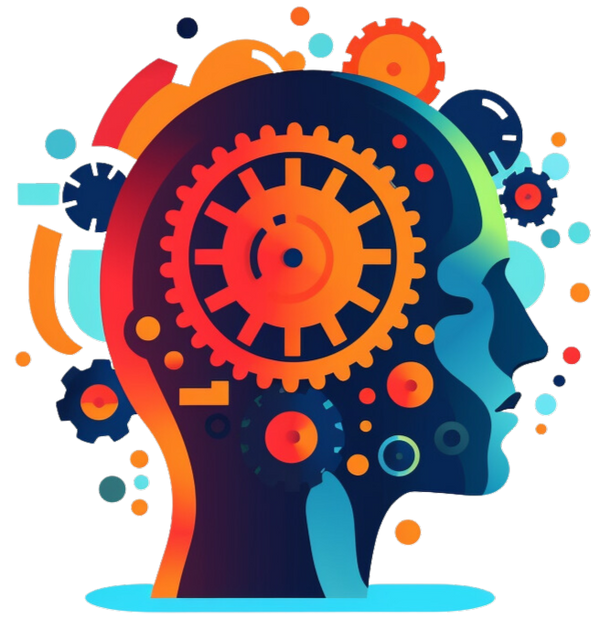
ADHD Paralysis: Trapped in the Blockade
Share
A less well-known, but equally distressing, manifestation of neurodivergence is so-called "ADHD paralysis." Learn more about it here.
Paralysis? This phenomenon describes a state in which those affected are unable to act despite having clear tasks and goals. Everyday life becomes a challenge, as even simple tasks seem insurmountable. This blog is divided into three chapters to shed light on ADHD paralysis—and the associated "inaction effect"—and to demonstrate strategies for overcoming this blockage.

What are ADHD paralysis and the inaction effect?
ADHD paralysis is a state of mental blockage in which those affected are unable to begin or complete a task despite existing motivation and planning. This leads to a frustrating inability to act, which often manifests in a vicious cycle of procrastination and self-reproach. "Wanting" and "doing" are (also) two very different things in the brain, or rather, are triggered by different neural networks. And dopamine (the neurotransmitter), which is insufficiently supplied in the frontal lobe in ADHD, is crucial for moving from pure thinking to implementation of tasks.
A central concept closely linked to ADHD paralysis is the "inaction effect." This describes the psychological phenomenon that people often feel more regret about things they haven't done than about those they have performed imperfectly. This effect can be particularly pronounced in people with neurodivergence, as they tend to ruminate on past "missed" actions. This rumination reinforces the block, further exacerbating the problem.

Neurological reasons for ADHD paralysis
The neurological basis of ADHD paralysis lies in the functioning of the brains of people with neurodivergence. At its core are dysfunctions in executive functions, which are located in the prefrontal cortex of the brain. This brain area is crucial for planning, organization, impulse control, and the ability to initiate and complete tasks. In ADHD, these functions are impaired, making it significantly more difficult to initiate actions.
Another relevant neurological aspect is the dopaminergic system. Dopamine is a neurotransmitter closely linked to motivation, reward, and drive. In people with neurodivergence, there is evidence that dopamine production and availability in the brain are reduced. This leads to lower drive and increased susceptibility to distraction. The lack of dopamine activity also explains why those affected have difficulty taking action on tasks without immediate reward or incentive.
In addition, underactivity in the prefrontal cortex affects the regulation of emotions and stress. People with neurodivergence tend to become overwhelmed quickly, which in turn can exacerbate paralysis. The overstimulation and inability to prioritize often lead to those affected becoming paralyzed and unable to make decisions.

Strategies to overcome ADHD paralysis
Despite the neurological challenges that ADHD paralysis brings with it, there are various strategies to counteract this mental block. A first step is recognizing and accepting one's own limits. This can help reduce pressure and set realistic goals. The following approaches have proven particularly effective:
1. Calming the nervous system: Breathing exercises and other stress management techniques, such as the Wim Hof breathing technique , can help calm the nervous system and create a foundation for active action.
2. Break down tasks: Breaking large tasks into smaller, manageable steps can reduce the overwhelming effect and make it easier to get started.

3. Create a start-up routine: Establishing a routine before starting a task helps ease the transition into work mode. This includes simple activities like taking a short walk or tidying up your workspace.
4. Use timeboxing: This method involves defining a fixed time frame for each task. This can increase motivation and reduce the tendency to procrastinate.
5. Seek support: Sometimes the presence or support of another person can help you take the first step and tackle the tasks. This could be an ADHD coach or a psychologist.

ADHD paralysis is a serious challenge that can significantly impact everyday life. But with the right strategies and an understanding of the underlying mechanisms, those affected can learn to overcome this block and gain more control over their actions.

2 comments
Danke!
Ich praktiziere die Wim Hof Atemtechnik seit ca. 5 Jahren und kann bestätigen, dass sie sehr gut hilft. Zum Einstieg darf, soll und kann man die Atemzüge und Atem- Pausen genau für sich passend ausführen, was gerade auch mit zusätzlichem Trauma im Hintergrund wichtig ist. Ausprobieren, dran bleiben, Stück für Stück! Geht gut auch ohne Coach!
Sehr interessant. Ihr müsstet nur dazuschreiben, wie man zeitnah an geeignet qualifizierte Therapeuten gelangt.
So bleibt das häre Wissenschaft.